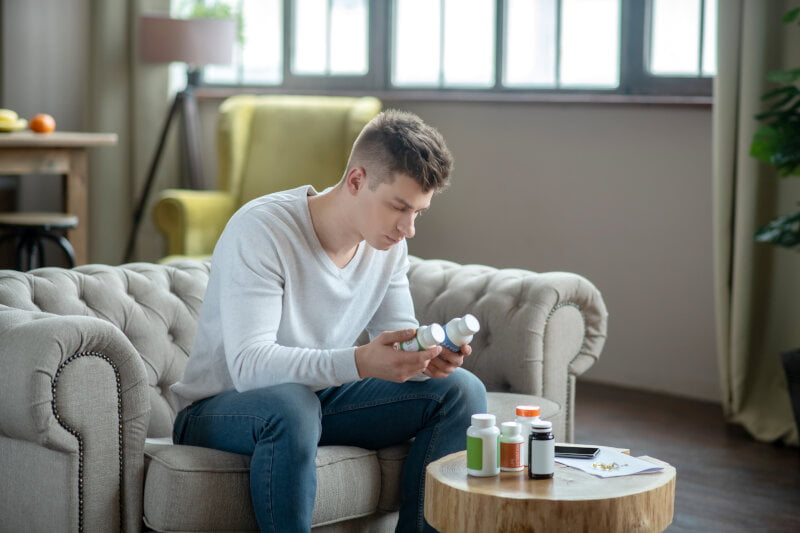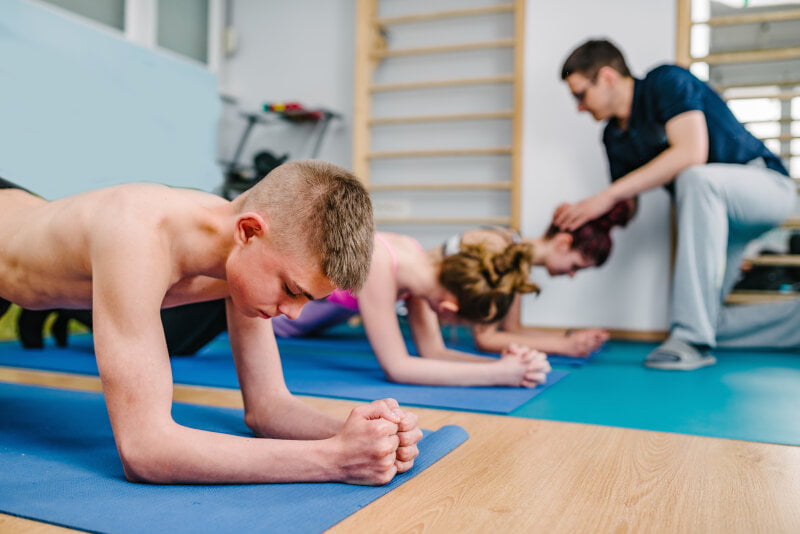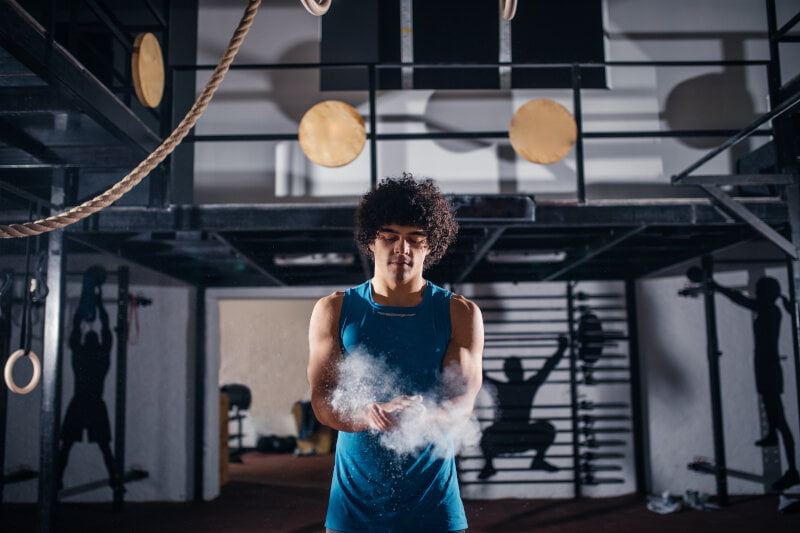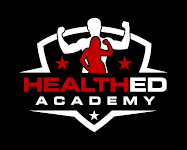Testosterone supplements have flooded health food stores and retailers, giving many teens easy access to natural testosterone boosters.
Let's find out whether teens and young men should take natural testosterone boosters and if there will be benefits or problems if they do.
What are Testosterone Boosters, and How Do They Work in the Body?
Testosterone booster supplements are herb and vitamin-rich dietary supplements(1). When consumed, these ingredients can help increase testosterone production, thus lowering estrogen levels.

T-boosters claim that, with increased testosterone, users can enjoy healthier, stronger bodies. Other stated benefits are a faster metabolism and lower body fat. These supplements may also improve sexual performance.
Take note, do not confuse T-boosting supplements with prescription testosterone medication.
These testosterone-containing drugs should only be taken with the advice and supervision of a doctor.
What are the Benefits of T Boosters?
T-boosters are typically taken to support muscle gain, improve athletic performance, and positively affect one's mood.


Older males favor T-boosters due to their ability to rekindle sexual desire(1). They improve blood flow and oxygen absorption, leading to stronger erections and better sperm quality in the testicles.
Though teenagers who use test supplements may get some benefits, such as higher muscle mass, the risks may outweigh them(2). This is especially true for adolescent hormones during puberty.
How Can Teens Benefit from Taking T Boosters?
A study found that teenagers taking test(3) in drug form (NOT test supplements) via TRT were able to fight delayed puberty and develop secondary sex characteristics. However, this treatment is only typically recommended for teens at risk for or suffering from hypogonadism.


On the other hand, while the proper formation of test can ensure skeletal muscle development and proper hormonal balance, ordinary teens are discouraged from taking test supplements until their early twenties.
We cannot recommend creatine (another muscle-boosting chemical) either, as this may lead to hormonal imbalances, which can create unsavory health conditions(2) down the line.
Are there any Side Effects of Testosterone Boosters?
Common side effects of test supplements in men include nausea, headaches, and loss of libido, similar to if they had low testosterone levels.


However, the risk for teens is much higher. One of the side effects is gynecomastia (tissue growth that leads to male breast enlargement).
Creatine, meanwhile, may cause muscle cramps and weight gain.
This is particularly concerning as a new study found that many supplement store distributors are willing to sell(2) a test supplement to children as young as 15.
Are T Boosters Safe for Teenagers & What are the Risks?
A medical professional is always better equipped to explain the health risks of taking testosterone and steroids for late teens still undergoing puberty.
Additionally, there aren't many studies on teenagers taking and testing T-boosters, as it is can be unethical to test and allow minors to undergo this research.


There is only some research(4) on teenagers undergoing testosterone therapy due to delayed puberty.
Nevertheless, there are known risks of increased and unnatural levels of testosterone in the body that may also apply to teens.
According to a study(5), some possible risks that an overabundance of testosterone can produce are the following:
- Cardiovascular disease
- Prostate cancer
- Acne outbreaks
- Infertility
- Gynecomastia
IMPORTANT NOTE: These findings mainly discuss the possible risks of excessive testosterone due to TRT for adult men. Over-the-counter T-boosters were not used. Additionally, these findings are inconclusive, as side effects can vary depending on several factors (e.g., age, fitness level, duration of testosterone treatment, etc.)
What are the Healthy Levels of Testosterone in Teens?
Before teenagers resort to treatment, test pills, and anabolic steroids, they must ensure that their natural testosterone levels align with what is healthy for their age(6).
Teenagers should have between 200 and 500 ng/dl (nanograms per deciliter), which is ideal at this stage of their development. They should not be striving for the 1000 ng/dL found in adults.
Are Testosterone Boosters Recommended for Teenagers?
So, should teens take testosterone booster products?
The American Academy of Pediatrics, the area of medicine concerned with young people under 18 years of age, discourages(2) taking creatine or test booster supplements.


Before teenagers can consider taking test to improve their bodies or put on more muscle mass, they must be aware of the symptoms of low testosterone and get a blood test to see if they have hypogonadism (low test).
Ultimately, having an overproduction of test and creatine in the body can overwhelm a teen's kidney function.
Frequently Asked Questions (FAQ):
Can I take testosterone pills at 14?
Teens should not be taking testosterone supplements because it will negatively affect how they process testosterone. It is only acceptable for minors to take a test dose/TRT if they suffer from hypogonadism. If not, they should focus more on exercise and other natural ways of increasing low testosterone.
At what age should you take testosterone boosters?
Natural testosterone boosters should only be used once testosterone levels decrease. This occurs in their 30s. At this stage, men can take test booster supplements. Teenagers are discouraged from taking this substance, as it may be detrimental to the natural changes occurring in the body during puberty.
What's it like to start taking testosterone supplements at age 15?
Teenagers who do not fully understand the changes their body goes through during puberty might think that test pills can give them more energy and strengthen them physically. However, it may actually cause them to stop growing in height and become more irritable.
What results can teens expect when taking t boosters regarding testosterone production, weight gains, strength, and building of muscle mass?
Although teenagers who take test may potentially experience muscle gain and higher energy, there is a higher possibility that it will also lead to a harmful overproduction of test.
Conclusion
While young boys may want to increase their male hormone amounts in their teen years, teenagers under 20 years of age should NOT take natural testosterone supplements (including creatine).
They should let their bodies develop naturally as much as possible and always consult with and take the advice of a doctor before adding any supplements to their diets.


- Clemesha, Chase G et al. “'Testosterone Boosting' Supplements Composition and Claims Are not Supported by the Academic Literature.” The world journal of men's health vol. 38,1 (2020): 115-122. doi:10.5534/wjmh.190043↩↩
- Herriman, Maguire et al. “Dietary Supplements and Young Teens: Misinformation and Access Provided by Retailers.” Pediatrics vol. 139,2 (2017): e20161257. doi:10.1542/peds.2016-1257↩↩↩↩
- Stancampiano, Marianna Rita et al. “Testosterone Therapy in Adolescent Boys: The Need for a Structured Approach.” Hormone research in paediatrics vol. 92,4 (2019): 215-228. doi:10.1159/000504670↩
- Kaplowitz, P B. “Diagnostic value of testosterone therapy in boys with delayed puberty.” American journal of diseases of children (1960) vol. 143,1 (1989): 116-20. doi:10.1001/archpedi.1989.02150130126033↩
- Osterberg, E Charles et al. “Risks of testosterone replacement therapy in men.” Indian journal of urology : IJU : journal of the Urological Society of India vol. 30,1 (2014): 2-7. doi:10.4103/0970-1591.124197↩
- Patel, Premal, et al. “007 Trends in Serum Testosterone Levels Among Adolescent and Young Adult Men in the United States.” The Journal of Sexual Medicine, vol. 17, 01 2020, pp. S3–S4. doi.org10.1016/j.jsxm.2019.11.010.↩
